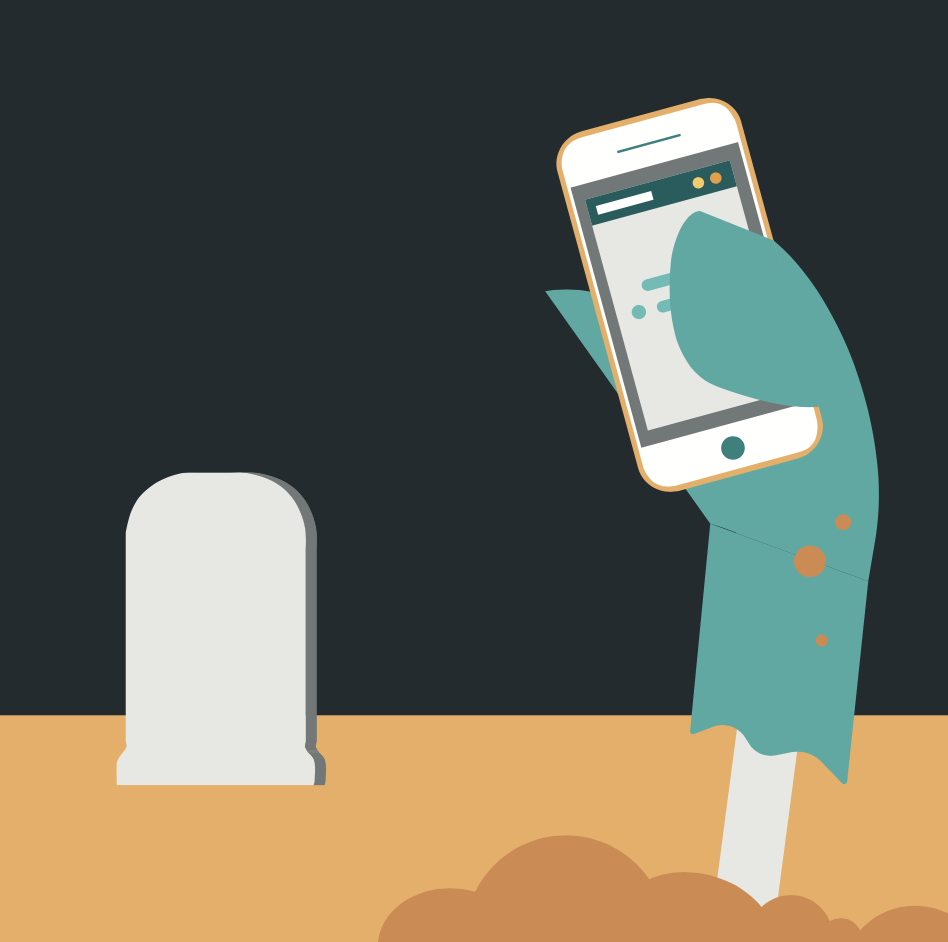Death is no longer the end... The digital afterlife.
This is not an article about uploading yourself to some kind of digital utopia a’la Black Mirror after you die. It’s about what happens to all of your data across the internet after you have popped your offline clogs.
Think for a moment about all of your user accounts across the internet; Facebook, Gmail, Amazon, Instagram, Tesco, Apple, banks, shopping sites, Streaming services... The list goes on and on.
It is insanely difficult for us to keep tabs on all of our own usernames and passwords, imagine what it would be like for your loved ones to do this on your behalf after you have died.
And it’s not only the accounts themselves, it is the data and content that we have shared, health data, finances, photos, emails, videos and more. What should be done with them after you have left this mortal coil?
Facebook's 'dead' population grows by about 8,000 people every single day. By 2070 there will be more dead people on Facebook than alive ones, would you want to remain on social media as a ‘memorial page’ or would you want to be removed forever? A survey by lifesearch.com found that 1 in 4 people wanted complete digital deletion after they die.
Before you die you can appoint a ‘legacy contact’ to look after your memorialised account or choose to have the profile permanently deleted.
If a social media account has not been ‘memorialised’ then there is danger that posts and photos will reappear and notify people long after they have died. This is not a pleasant thought for anyone.
But how many of us have thought about this, when less than 50% of adults in the UK have a will? Dealing with the death of a loved one is hard enough, but imagine if they also have to try and hack your email so they can access your online bank accounts.
Websites can “die” too…
There is another factor to consider here, which is what happens if a website shuts down/gets acquired/merges with another service/is brought down by hackers?
Your data could disappear forever. If it is an innocuous website, you could lose some relatively unimportant data, but what if it was Gmail? Imagine losing all of your email or your bitcoins or worse still your Fortnite gaming data?!! This could be a very real problem. Unfortunately it is much more difficult to ‘own’ that type of data as part of your user agreement (that no one ever reads) which could also state that the website or organisation that owns it actually owns your data. The best thing you can do is use paid services, who’s business model is more likely to support user ownership of data and download important data to local machines where possible.
What should you do?
Set up a digital death wishlist - and assign it to someone you trust with explicit instructions on what you want them to do with all of your digital assets
Use the Death Notification Service which allows you to notify a number of banks and building societies of a person's death, at the same time
Setup memorial account holders for your social media accounts
Have a master file of passwords online or offline or use a password service like dashlane or lastpass and give someone you trust access.


